Iraq Situation Report: November 9-17, 2016
November 17, 2016 - Emily Anagnostos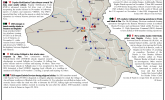
ISIS escalated its execution campaign in and around Mosul while reactivating networks in Anbar.

ISIS escalated its execution campaign in and around Mosul while reactivating networks in Anbar.
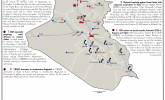
ISIS is attacking various locations and forces in Iraq in order to find and exploit a seam that can unravel the anti-ISIS Coalition.
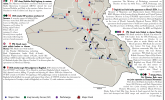
Prime Minister Haidar al-Abadi announced the launch of operations to retake Ninewa Province and Mosul from ISIS at dawn on October 17.
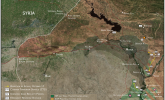
Iraqi and regional actors are preparing to assist with or spoil the Iraqi Security Forces’ (ISF) operation to retake Mosul and its environs from ISIS. Prime Minister Haidar al-Abadi announced the start of operations to retake the city on October 17.
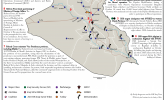
Former PM Nouri al-Maliki continues to shape the political landscape in Iraq. Turkish President Recep Erdogan and PM Abadi traded bombastic rhetoric over Turkish force presence northeast of Mosul.
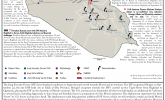
The Iraqi Security Forces (ISF) have finalized conditions to begin the push north towards Mosul and its environs.
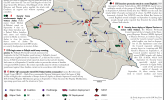
Security forces are overextended across Iraq due to increased ISIS attacks and provincial security issues.
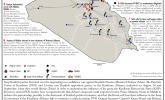
Iraqi Kurdish parties fractured over the impending no-confidence vote against Kurdish Finance Minister Hoshyar Zebari. Meanwhile, the National Alliance, the pan-Shi’a bloc in the CoR, selected Islamic Supreme Council of Iraq (ISCI) leader Ammar al-Hakim as its new chairman on September 5.
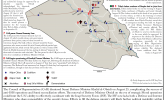
The Council of Representatives (CoR) dismissed Sunni Defense Minister Khalid al-Obeidi on August 25, complicating the success of anti-ISIS operations and Sunni reconciliation efforts.
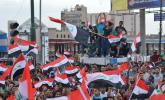
Updated on August 25: Iraq’s Prime Minister Haidar al-Abadi and his entire cabinet are at risk of a no-confidence vote following Parliament’s ouster of Sunni Defense Minister Khalid al-Obeidi. This page provides a comprehensive collection of ISW reporting and analysis of this political crisis, which ISW has covered since it began.